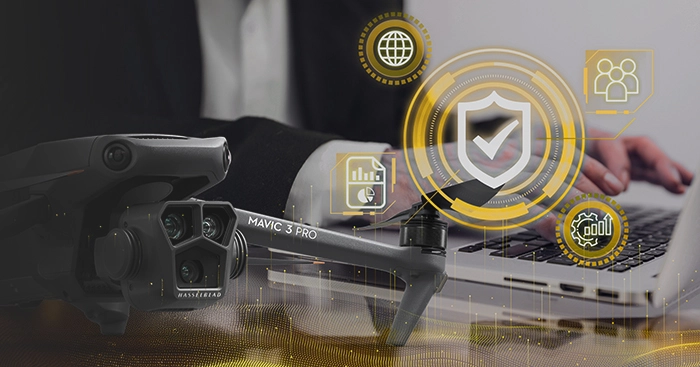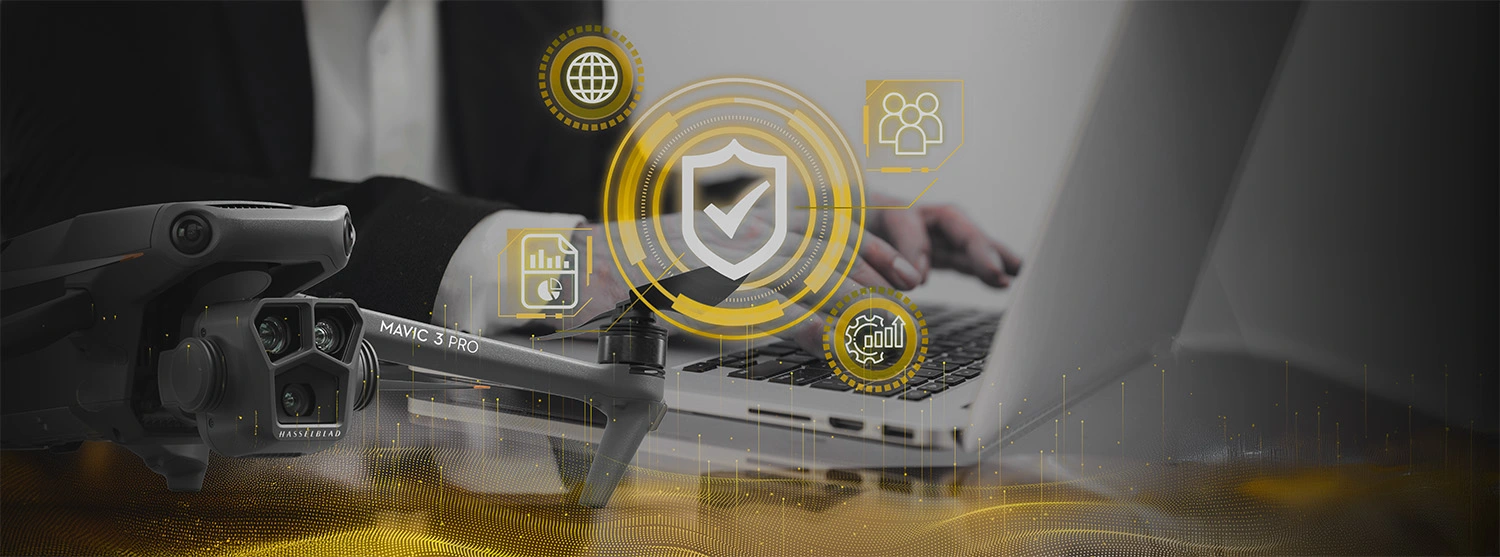Mandatory liability insurance for drones - new changes in 2025.


In January 2025. an amendment to Poland's aviation law has come into effect, part of which are updates to drone regulations. One of the most important novelties is the obligation to carry liability insurance, which covers operators of drones with a takeoff weight of 0.25 to 20 kg. Such a solution is expected to contribute to faster resolution of disputes in the event of damage to air operations. What you should know?
New regulations from January 24, 2025
Still at the end of 2024, the Parliament passed an amendment to the Aviation Law - its new version is effective as of January 24, 2025. In the case of drone regulations, the main idea is to bring national regulations in line with EU standards, with an emphasis on provisions on safety and responsibility of operators. Previously, a third-party liability policy was only required for equipment weighing more than 20 kg. However, the new insurance requirements will cover all drones from 0.25 kg upwards, which covers the vast majority of equipment used both privately and commercially.
The purpose of mandatory insurance is primarily to streamline the process of covering damage caused in the course of flight operations. Importantly, this obligation applies to all drone operators - regardless of whether the devices are used for private or commercial purposes. Lack of insurance may result in a financial penalty of up to PLN 4,000, while the cost of the liability policy itself depends on the variant chosen. So-called amateur insurance is available from as little as several dozen zlotys per year, in contrast, policies covering commercial drone piloting are an expense of about 200-800 zł, depending on the sum assured and the details of the contract. Separate rates may apply for uniformed services, i.e. police, firefighters or border guards. In the article: Fine for flying a drone - how much are the fines? check the table with the amounts for each offense.
Consequences of not having liability insurance for a drone pilot and other information you should know
What's the penalty for not meeting policy requirements? The main risk in this case is high costs in case of damage to third parties. In a situation where a drone causes damage to property or the health of bystanders, the operator without insurance will have to pay all costs out of his own pocket. Lack of insurance may additionally result in the aforementioned financial penalty. Importantly, the policy covers the drone operator, not the device itself - This means that you only need one insurance to cover flights with different drones that fall under the new regulations. Depending on the offer selected, the policy may cover flights in different categories, mostly in the open and special category - this is also related to changes in the classification of flights, which were previously divided into recreational, sport and commercial. The previous division was replaced by the following categories:
- open category - The lowest-risk operations, under conditions of visual visibility;
- special category - All operations requiring a permit from the Civil Aviation Authority (CAA), preceded by a risk analysis;
- certified category - The riskiest operations, possible only with a certified BPS and after registration in the register of civil aircraft.
Insurance obligation from November 2025
Although the amended law became effective on February 27, 2025, according to Art. 33 of this law, the obligation to conclude a liability insurance contract will not come into force until nine months after the date of its promulgation. The law was promulgated in the Official Gazette on February 12, 2025., which means that the requirement to carry a third-party liability policy will take effect on November 13, 2025.
One of the most cost-effective liability insurance solutions for drone operators is the offer available at AeroPolisa. You can find insurance at a competitive price, tailored to your needs.
Insurance the responsibility of the operator, not the pilot
Mandatory liability policies will not be assigned to a specific pilot, but to the operator of the BSP system. This means that, for example, a company that operates and owns a fleet of drones will be required to purchase insurance covering its operations.
Detailed insurance coverage
The amendment to the law introduces an additional provision in Art. 209(2). 8:
"The minister in charge of financial institutions, in consultation with the minister in charge of transport, shall determine, by regulation, the detailed scope of the compulsory insurance referred to in paragraph. 1a, the date on which the obligation to insure arises and the minimum guarantee amount, taking into account the specifics of operations carried out by operators of unmanned aircraft systems."
This means that at this point we do not yet know the specific terms of the insurance, the amount of the minimum sum assured, or the final date on which it will come into effect. A draft regulation on the matter has also not been published.
Who will control drone liability insurance?
The amended law gives the right to check compliance with the obligation to provide liability insurance not only to the Civil Aviation Authority (ULC), but also to selected services. In accordance with Art. 156ze lips. 3:
"The entities referred to in paragraph. 2 (officers of selected services), in the cases indicated in paragraph. 1, shall be entitled to verify compliance with the obligation to conclude an insurance contract referred to in Article. 209(2). 1 and 1a."
The list of services authorized to inspect includes:
- Internal Security Agency
- Intelligence Agency
- Military Counterintelligence Service
- Military Intelligence Service
- Central Anti-Corruption Bureau
- Police
- Border Guard
- State Protection Service
- Customs and Fiscal Service
- Prison Service
- Marshal Guard
- inspectors of the Internal Supervision Bureau
- soldiers of the Military Police and the Armed Forces of the Republic of Poland
- forest rangers
- security personnel of specialized armed security formations
In practice, this means that any of these institutions can inspect the legality of the drone's use, including whether its operator has the required liability policy.
What other changes are in the new law?
Another major novelty is new powers of the Polish Air Navigation Agency (PAŻP) regarding drone flights. From January 2025. PAŻP may designate geographic zones where drone operations are restricted or prohibited. This is to eliminate threats to safety, the environment and the privacy of bystanders. Additionally, the amendment grants law enforcement officers the right to destroy, launch or take control of a drone in life, health or safety emergencies. In such situations, liability for damages lies entirely with the drone operator - regardless of whether the drone pilot has liability insurance.
The new regulations are an important step towards increasing safety and control in Polish airspace. Drone operators should be aware of their new responsibilities, especially with regard to liability insurance for drone pilots - It is worth taking out a policy right away to avoid potential financial and legal penalties. Learn more about current drone regulations at this link: Drone regulations 2025 - everything you need to know. There you will find the most important rules and tips to help you use your drone safely and legally.
